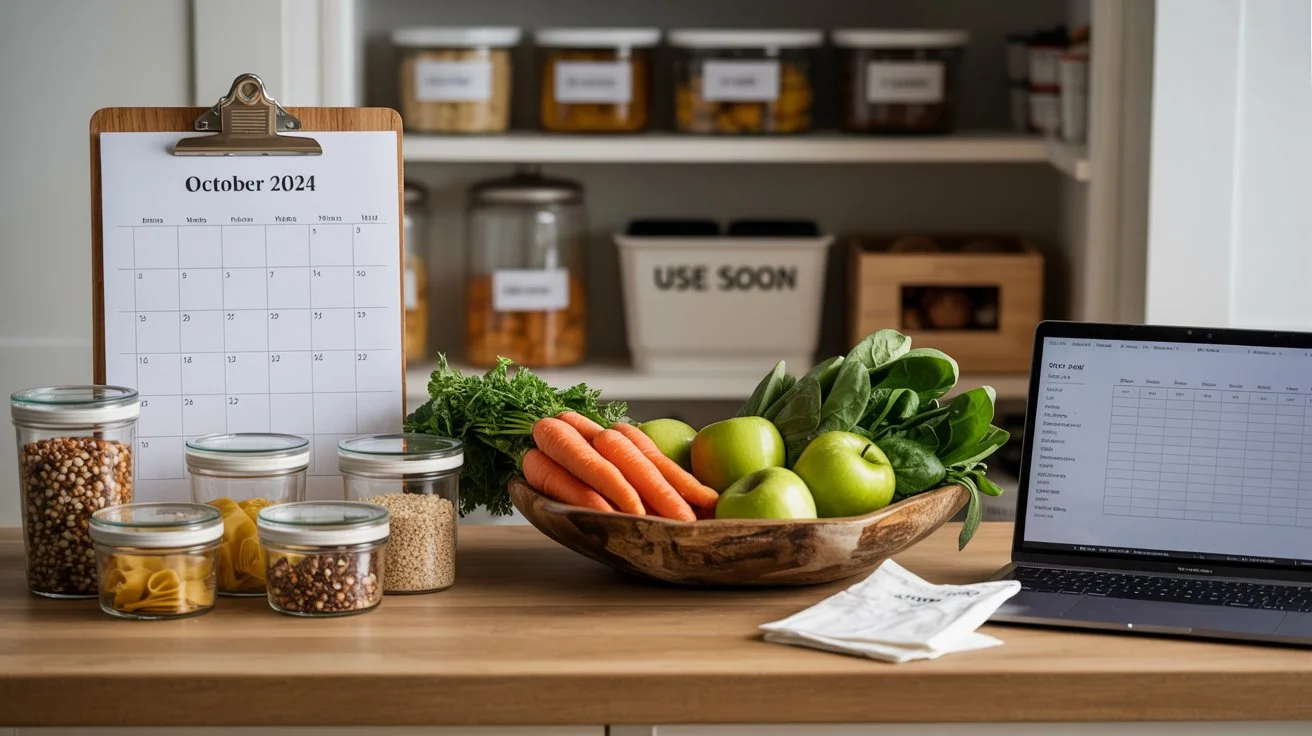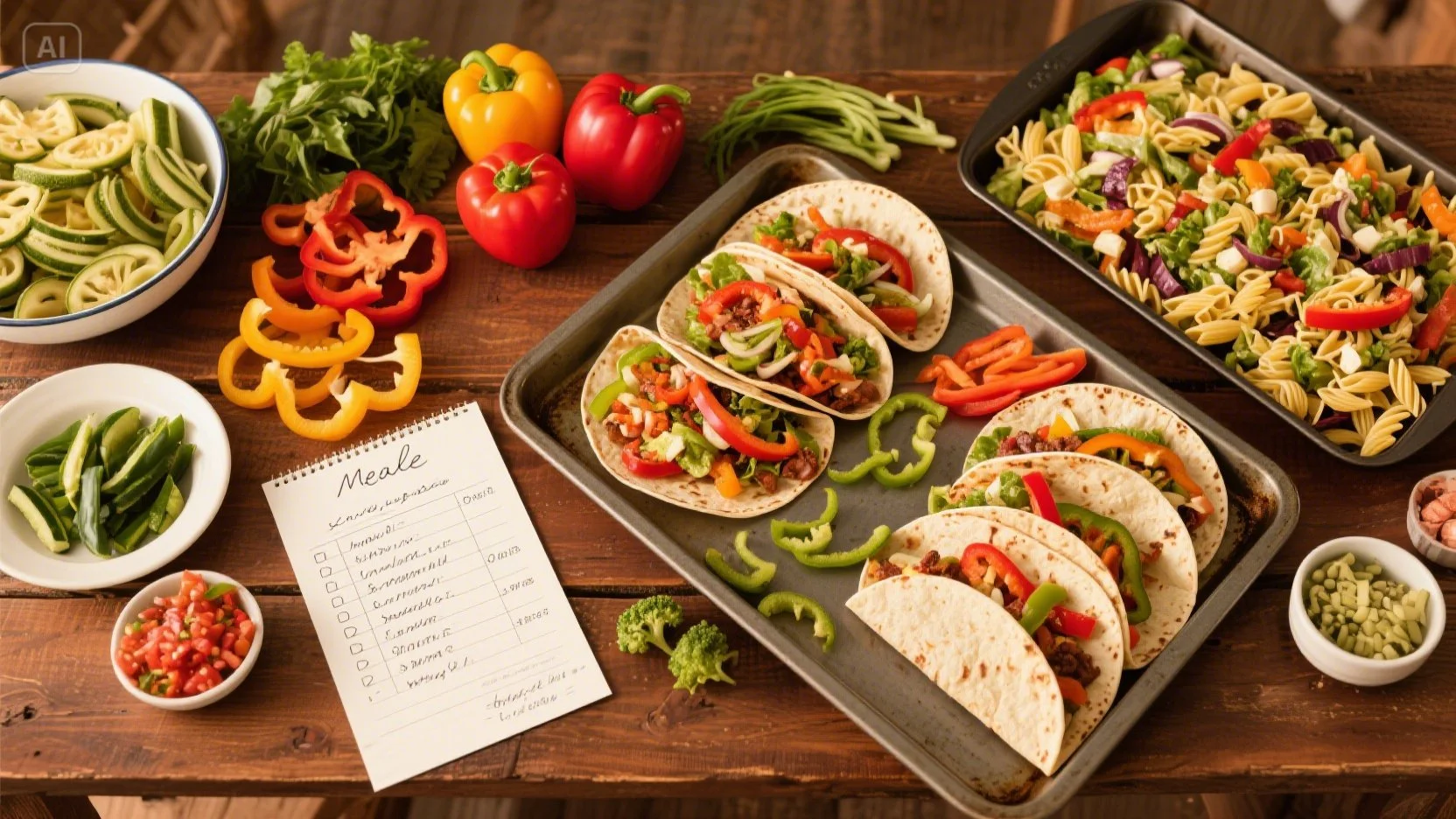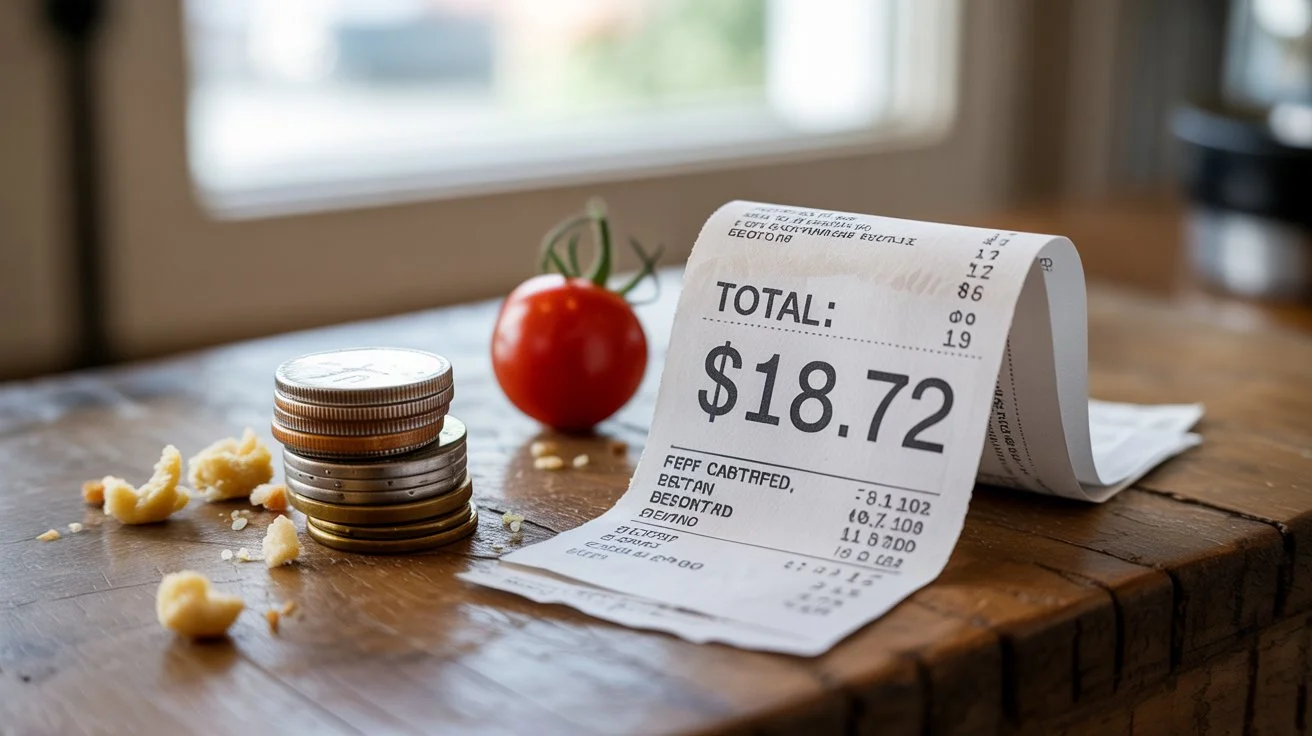Meal Planning Ideas: Save Time, Save Money, Eat Better
Hey there, fellow home managers! Does dinner time feel like a chaotic rush every single night? Are you staring into the fridge wondering “What on earth am I going to make?!” only to order takeout again? We’ve all been there! It’s easy to feel overwhelmed by the daily question of “what’s for dinner?”.
That last-minute scramble isn’t just stressful; it often leads to USDA Economic Research Service food waste, extra grocery runs (hello, impulse buys!), and spending more money than you planned. The good news? There’s a simple way to ditch the dinner time drama and take back control. Enter effective meal planning ideas!
Meal planning isn’t about being rigid or spending all Sunday in the kitchen (unless you want to!). It’s about having a flexible game plan that saves your sanity, your time, and your wallet. In this post, we’re diving into a bunch of different ways to approach meal planning to show you just how easy it can be to take control of your kitchen, make delicious meals, and actually enjoy the process. Get ready to save time, save money, and eat better!
Why Bother? The Real Benefits of Smart Meal Planning
Let’s get down to it. Why should you even consider adding meal planning to your routine? The benefits are huge, and they go way beyond just having an answer to “what’s for dinner?”.
First off, meal planning saves you precious time. Think about the minutes (or hours!) you spend each week deciding what to eat, scrolling through recipes at 5 PM, or running to the grocery store for a forgotten ingredient. When you have a plan, those frantic moments disappear. You know exactly what you need, what you’re making, and when. That frees up time for family, hobbies, or just putting your feet up!
Next, and this is a big one for many of us, meal planning saves you money. How? Well, it helps you use what you already have (more on your amazing pantry later!). It significantly cuts down on impulse buys at the grocery store because you’re shopping with a specific list. It also drastically reduces food waste – that sad produce wilting in the fridge is basically cash in the trash. Planning helps you use everything you buy. You can even plan meals based on what’s on sale!
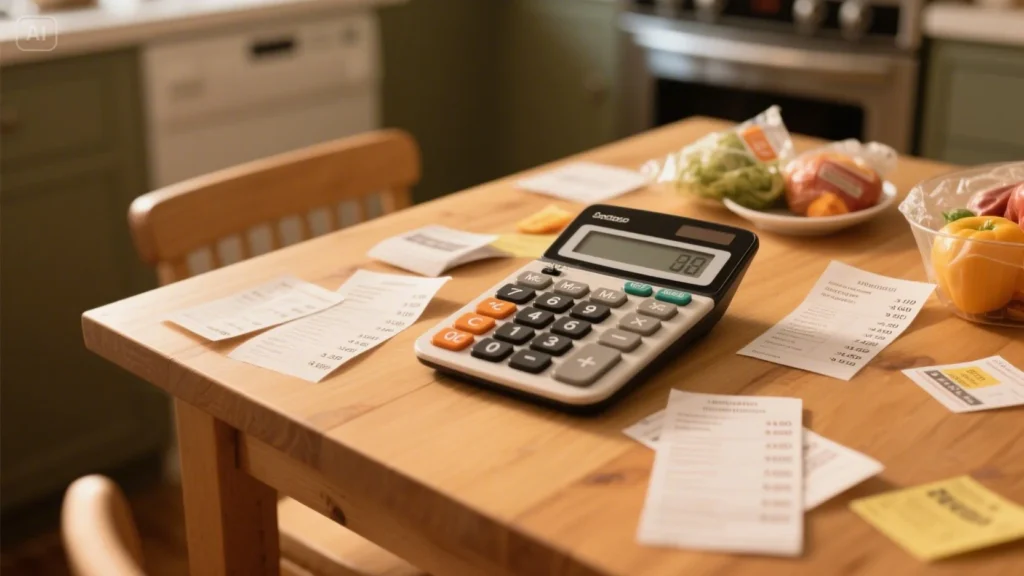
Plus, meal planning makes it easier to eat better. When you’re not stressed and making last-minute decisions, you’re more likely to make healthier choices. You can intentionally build balanced meals into your week, ensuring you’re getting a good mix of nutrients instead of defaulting to convenience foods because you’re out of time or energy.
Finally, it just plain reduces stress. That feeling of dread as dinner time approaches? Gone! Knowing you have a plan and the ingredients to execute it brings a sense of calm and control to your busy week. It’s truly a game-changer for your mental load.
These benefits work together beautifully and tie directly into other areas of managing your home, like having a clear understanding of What’s In Your Pantry and practicing Smart Shopping habits.
Finding Your Meal Planning “Flavor”: Different Ideas to Try
Alright, convinced that meal planning is worth a shot? Awesome! The great news is that there’s no single “right” way to do it. The best meal planning approach is the one that fits your life, your family’s needs, and your personal style. Let’s explore some different ideas you can borrow from and make your own.
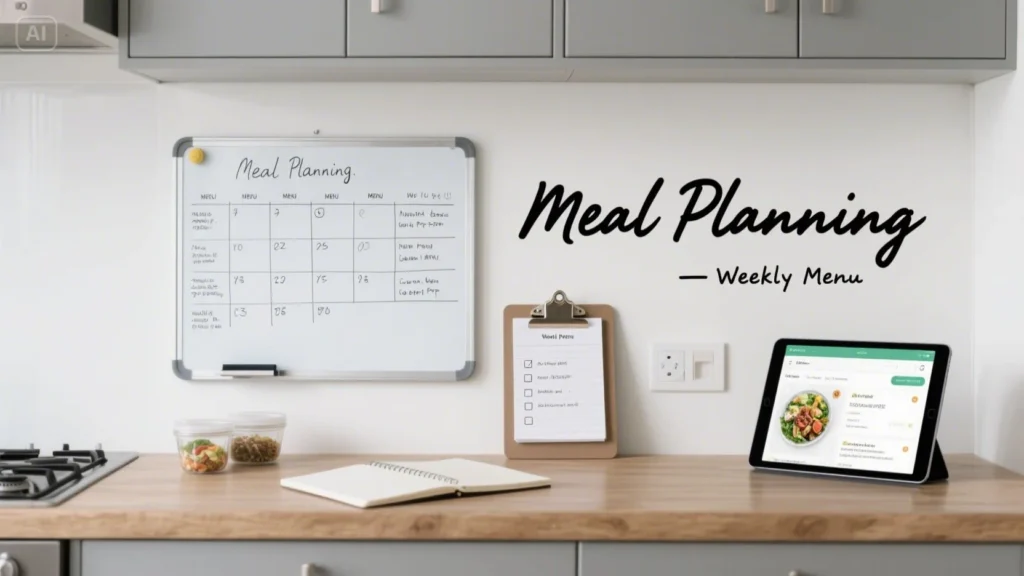
The Weekly Warrior: Your Solid Go-To
This is perhaps the most classic approach to meal planning. You sit down sometime before the week starts (Sunday is popular!) and plan out your dinners for the next seven days. Some people stop there, while others plan lunches, breakfasts, and even snacks.
Quick & Easy Weeknights: Perfect for Busy Bees
Life gets hectic, right? If your weeknights are a whirlwind of activities, schoolwork, or late meetings, you need meal planning ideas that prioritize speed and simplicity.
Planning these quick meals ahead of time means no last-minute takeout decisions when you’re exhausted. It’s a win for your time and your wallet!

The Budget Boss: Saving Those Pennies!
Meal planning is one of the most powerful tools you have for saving money on groceries. If cutting costs is a priority, focus your meal planning ideas around being budget-friendly.
This approach works hand-in-hand with really knowing How to Use Your Pantry Inventory and practicing Smart Shopping to Save Money. When you plan for budget, you automatically make smarter choices! This is a deep dive we explore further in our post on Budget Meal Planning
Pantry & Freezer First! Shop Your Own Kitchen
At Paantry.com, we love this approach! Before you even think about the grocery store, open up your pantry, fridge, and freezer. What do you have that needs to be used? What staples are on hand? Build your meal plan around those items first!
This method directly links Meal Planning with Easy Pantry Inventory and Pantry Organization Strategies. It ensures you’re using your resources wisely before buying more! We share more specific ideas in our post all about Meal Planning with Pantry Staples.
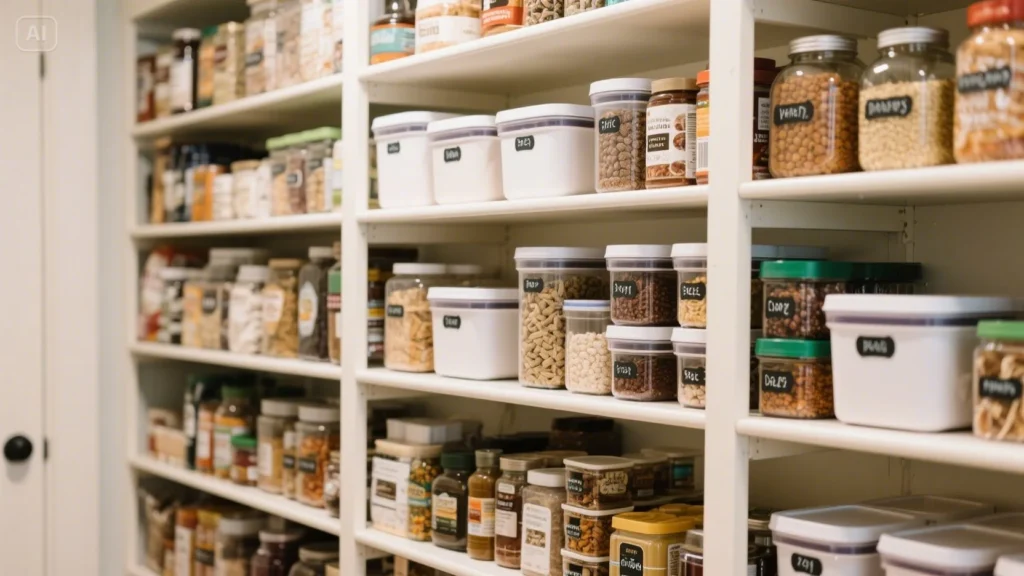
Family Meal Central: Keeping Everyone Happy (ish)
Planning meals for a family comes with unique challenges – varying schedules, picky eaters, different preferences. Your meal planning ideas need to account for multiple people!
Having a plan for family meals reduces the “what’s for dinner?” negotiation and stress. It makes dinner time smoother and more enjoyable. Planning ahead also means fewer last-minute dashes for kid-specific snacks or ingredients (hello, Smart Shopping Tips for Families).
Learn more about simplifying meals for everyone in our guide to Family Meal Planning.
Other Ideas to Explore (Briefly)
Getting Started: Simple Steps to Put Ideas into Action
Feeling inspired? Ready to give one of these meal planning ideas a whirl? You don’t need fancy tools or a rigid system to start. Here’s how to dip your toes in and find what works for you:

Tips & Tricks for Meal Planning Success
Like any new habit, meal planning takes a little practice and adjustment. Don’t get discouraged if your first week isn’t perfect! Here are some pointers to keep you going and make it sustainable:
Connecting Your Kitchen
Meal planning is just one incredibly powerful piece of the puzzle for creating a smooth-running kitchen and a more organized home! It works best when you integrate it with other helpful habits.
A great meal plan starts with knowing What’s In Your Pantry?. It’s much easier to plan meals and make a smart grocery list when you know what ingredients you already have on hand. Keeping your pantry Organized means you can quickly see your inventory and find what you need when it’s time to cook. And finally, meal planning is the foundation for Smart Shopping, helping you buy only what you need, reduce impulse buys, and save money at the store. We’ll be diving deeper into each of these topics in future posts, so stay tuned!

Conclusion
Finding the right meal planning ideas for your lifestyle can truly transform your relationship with your kitchen. By taking a little time to plan ahead, you gain control over your schedule, your budget, and what you eat. You can significantly reduce stress, save valuable time, and keep more money in your pocket while making healthier, delicious meals right at home.


